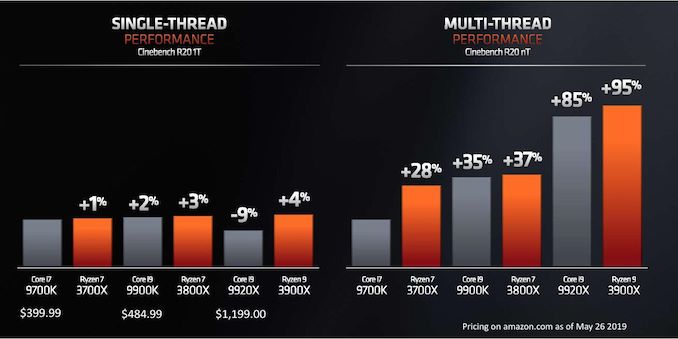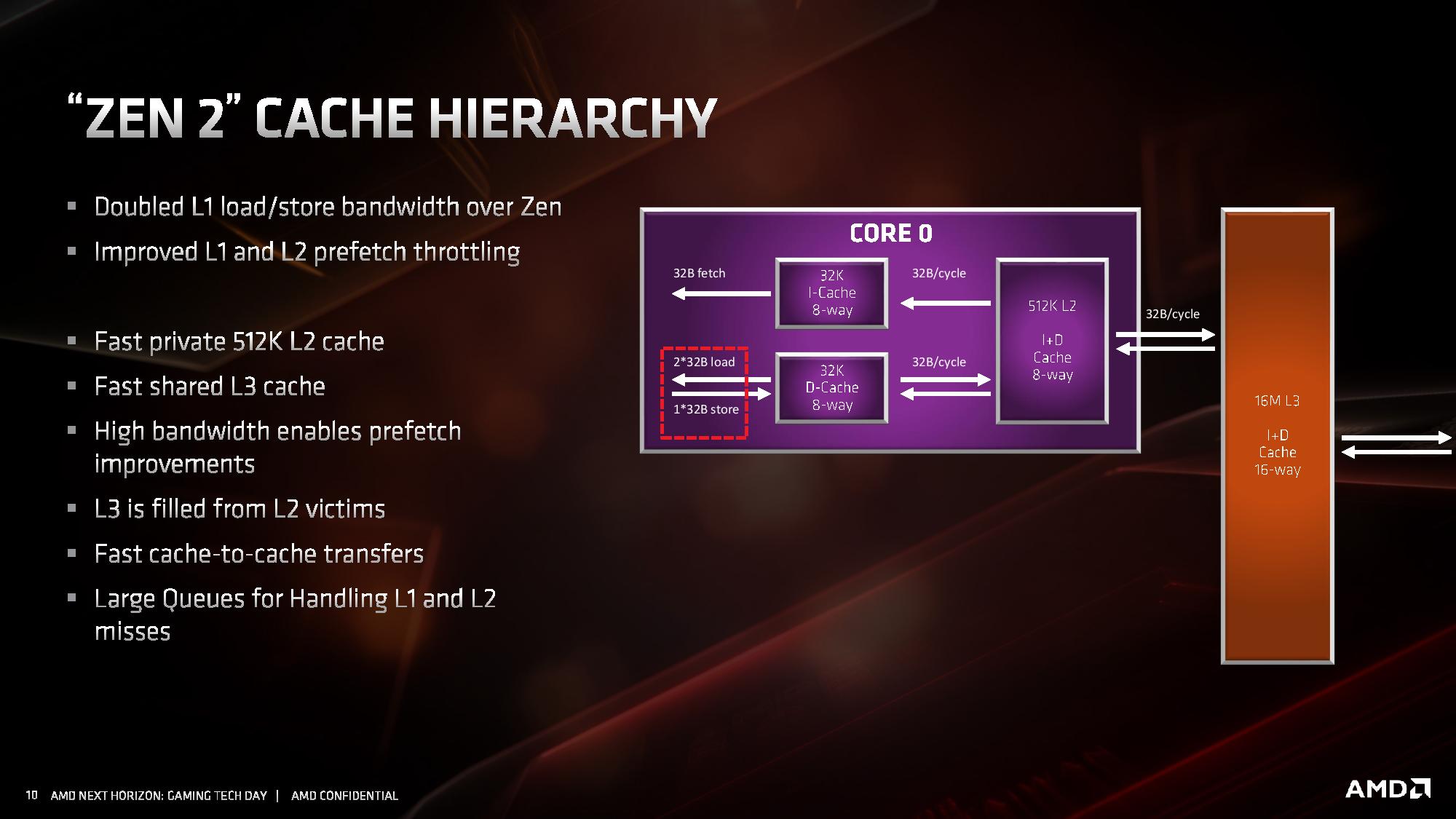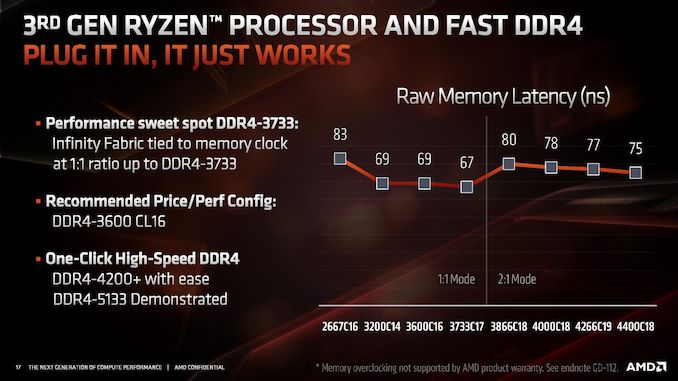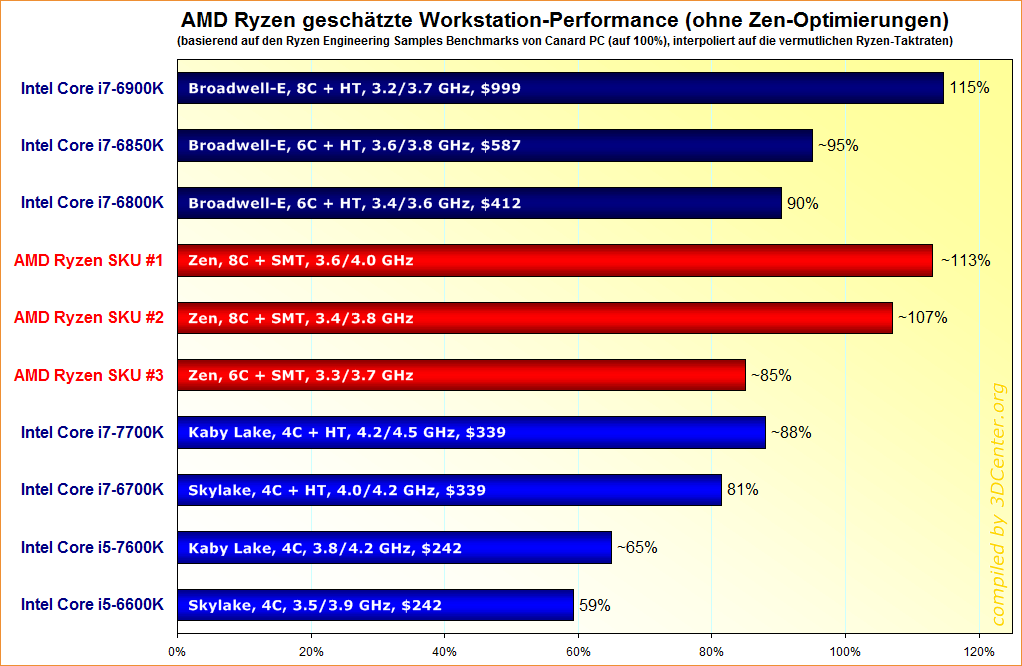
Welcome to the Official AMD Ryzen MegaThread! This thread will be the main location for all Ryzen discussion and information!
Note: This is a complete overhaul of the Ryzen Megathread. All information has been completely revamped as of 6/12/2019.
This thread serves as the primary discussion thread for all Ryzen information and resources. While discussing, please remember to stay within the guidelines set by Tom's Hardware and above all, DO NOT start a flame war.
A Brief History of Ryzen
##################################################################################################
Ryzen’s story starts well before 2017 (launch year for Ryzen), in fact AMD engineers have been working on the Zen architecture 5 years in advance of 1st Gen Ryzen. Yes this means that they were working on Zen during the days of Piledriver and Bulldozer in their FX CPU lineup.
AMD’s goal with Ryzen was to push more cores to the foreground of computing, and increase single core performance at the same time. Whereas in previous architectures, AMD focused more on the multithreading side of things (and didn’t pay much attention to single core performance) which didn’t work out well.
When 1st Gen Ryzen launched in early 2017, it shook up the ground in the CPU space in ways that had never been seen in over a decade. For the first time in years, AMD had a product that not only beat Intel hands down in multithreaded performance, Ryzen also had very good single core performance. For $320 you could get an AMD Ryzen 7 1700 8 core CPU, to get something like that on the Intel side of things, you had to spend nearly $1000.
Of course Intel countered AMD’s offerings immediately by adding a few more cores to their mainstream lineup in 2018, starting with the likes of the hexa core i7 8700K to help win the multithreaded workload battle which they severely lost with their quad core Kaby Lake chips.
But in the same year, AMD launched new CPUs on the new Zen+ architecture. Ryzen 2000 improved 1st Gen Ryzen’s biggest issues which were cache latency, memory latency and a weak memory controller. For Zen+ AMD used the 12nm FINFET architecture which brought up core clocks across the board by around 200mhz. Where 1st Gen Ryzen (on 14nm) struggled to even hit 4GHz, nearly all Ryzen 2000 CPUs could hit 4ghz and many being able to hit 4.2ghz.
This allowed AMD to significantly close the space on Intel when it came to gaming performance. Still, Intel won the vast majority of gaming benchmarks, however, AMD did gain a lot of ground, while at the same time having superior multithreading performance to Intel’s counterparts. This made 2nd Gen Ryzen a very attractive buy for customers.
Now with Ryzen 3000 on the Zen 2 architecture, it looks like AMD will be winning ALL workloads against Intel.
Ryzen 3000 SKUs
##################################################################################################
As of now, there are 6 SKUs to choose from:
Ryzen 9 3950X - 16 Cores - 3.5 & 4.7GHz - 72MB of Cache - 105W TDP - $749
Ryzen 9 3900X - 12 Cores - 3.8 & 4.6GHz - 70MB of Cache - 105W TDP - $499
Ryzen 7 3800X - 8 Cores - 3.9 & 4.5GHz - 36MB of Cache - 105W TDP - $399
Ryzen 7 3700X - 8 Cores - 3.6 & 4.4GHz - 36MB of Cache - 65W TDP - $329
Ryzen 5 3600X - 6 Cores - 3.8 & 4.4GHz - 35MB of Cache - 95W TDP - $249
Ryzen 5 3600 - 6 Cores - 3.6 & 4.2GHz - 35MB of Cache - 65W TDP - $199
(I will add Ryzen 3000 APUs later, as they aren’t the star of the show, and don’t run on the Zen 2 architecture.)
Zen 2 Improvements
##################################################################################################

Core Clocks:
With TSMC's new 7nm technology, AMD is able to hit 4.7ghz boost clocks on their top tier CPUs. Now matching Intel’s Coffee Lake CPUs clock for clock.
Floating Point Performance:
AMD now fully supports AVX 2 support and doubled the unit width if it’s execution units from 128-bit to 256-bit.
Memory Latency:
Not too much information is given on this yet, but according to some leakes and info I’ve seen, Memory latency is immensely improved, matching to even outperforming Intel Coffee Lake chips.
Cache & Cache Latency:
L1 & L2 caches received some minor efficiency tweaks and latency improvements. Meanwhile, the L3 cache has suffered a very minor increase in latency. However the L3 cache has doubled in size vs last gen, which AMD says should make the higher latency a non-issue.

Infinity Fabric 2.0:
AMD’s infinity fabric now has a much larger bus width of 512-bit, coming from 256-bit on older Zen architectures. Efficiency has also gone up by 27%, allowing lower power consumption, and IF2 now supports PCI-E Gen 4.0.
AMD has also linked the infinity fabric directly to the I/O die on the Ryzen CPU’s PCB. No longer will CCX modules be able to talk directly to each other, they must go thru the I/O die (which of course is connected by IF2 entirely).
This has allowed them to somewhat decouple memory speed from the actual infinity fabric clock rate. More details below (in Memory Compatibility).

Memory Compatibility:
Memory support for Ryzen 3000 is a night and day difference vs older architectures. Lisa Su CEO for AMD says that 3600 CL16 is going to be the sweet spot for price to performance. Then adding that Ryzen 3000 can scale all the way up in to the mid 4000mhz range.
Memory overclocking will also be much easier according to AMD, in the past, Ryzen had a hard limit on memory frequency due to the infinity fabric having a single multiplier of a 1:1 ratio.
Now with Ryzen 3000, there are two multipliers to choose from. The standard 1:1 ratio that supports memory frequencies all the way up to 3733MHz. Then a 2:1 ratio for all memory frequencies above that. However, AMD said there is a latency penalty running a 2:1 ratio. So we’ll have to see more benchmarks on which workloads will benefit Ryzen with either a 1:1 ratio or 2:1 ratio. (AMD’s says you’re probably better off maxing out at the 3700mhz range on RAM, then overclocking/tightening the sub-timings of your RAM, so that you don’t incur the latency penalty.)
(FINALLY) Windows 10 Ryzen Optimized Scheduler:
Microsoft and AMD have also unveiled Windows 10’s new optimized scheduler for Ryzen, this allows the Windows 10 operating system to maximize efficiency by making sure multi die (and I assume multi CCX) chips have their cores being utilized in the best way possible.
In the past, Windows has always been optimized for Intel CPUs, and due to Intel’s use of the Ring Bus architecture, windows could schedule a task for whatever core it wanted without encouraging a performance penalty due to every single core in a Ring Bus CPU having equal latency to each core.
But with Ryzen, (and now Intel with their new Mesh architecture (Skylake-X CPUs)) throwing tasks at whatever core you wanted is bad on performance.
For example, lets say Windows throws a task on Core 1, which occupies one die & CCX of a Threadripper 2950x, then windows throws another task at say core 16, which would be on another die & CCX. Now imagine those tasks are related to each other, and core 1 has to talk to core 16 constantly to complete the overall workload, that is a TON of latency occuring.
Now imagine if Windows assigns both tasks to cores 1 & 2, both reside on the same die & CCX, occurring extremely low latency. Work between those two cores is going to get done WAY faster than the other way around.
This is what the new Windows 10 scheduler for Ryzen does, it makes sure one CCX/Die get’s completely soaked up with work before touching the next die/CCX. If die’s & CCX’s transfer as few things as possible to each other, the better.
X570 Chipset
##################################################################################################
The biggest topic for X570 is the introduction of PCI-E Gen 4.0. X570 will fully support PCI-4.0 on all PCI-E buses and ports (of course backwards compatibility with 3.0, 2.0 and 1.1 is supported).
Gen 4.0 is a big step in motherboard technology due to 4.0 being able to handle double the bandwidth of Gen 3.0. This should allow incredibly NVME SSD speeds in the future, and for graphics cards when they start fully saturating 3.0 speeds.
This is really the only feature talked about right now for X570, I will update this post with more info in the future.
Old Info on Ryzen:

Welcome to the Official AMD Ryzen MegaThread! This thread will be the main location for all Ryzen discussion and information!
Thread has been updated on 3/5/2017.
This thread serves as the primary discussion thread for all Ryzen information and resources. While discussing, please remember to stay within the guidelines set by Tom's Hardware and above all, DO NOT start a flame war.
AMD Ryzen is the next generation of CPUs coming from AMD. It has been a LONG awaited arrival since the failure of the FX CPUs that launched several years ago. Ryzen plans to fix everything that was wrong with their previous architectures, including single core performance and energy efficiency.
Pricing
Official Pricing for the Ryzen R7 CPUs starts at $329 for the 1700, $399 for the 1700X, and $499 for the 1800X. Ryzen 5 and Ryzen 3 pricing are unknown at this time.
Release Date
Pre-Orders Began on Feb 22. Official launch is March 2nd.
Performance
Performance for Ryzen as of now seems to be hit or miss. Ryzen is performing very well in highly threaded tasks however in gaming it seems to be taking a downfall vs mid range/high end core i5 and i7s.
The good news is that this architecture is new (VERY new), meaning that optimizations and patches should fix these performance issues with gaming. AMD has said it's working with dozens upon dozens of numerous games developers and programmers to get Ryzen optimized for the latest titles Intel is dominating on so far. (Unsuprising due to the fact that for the past 4 years there was no AMD competition, meaning developers didn't need to optimize for AMD.)
Overclocking has also been somewhat of a shock, Ryzen is by far one of the worst overclockers in CPU history. From what reviewers are saying, roughly 90% of all 1800X CPUs can only make it to 4.0ghz or less. Only a very small portion of 1800X chips can even hit 4.1ghz. (Note: This is with SMT on and ALL cores enabled. If you disable SMT and/or disable some cores, you will get higher overclocks.) However, if Intel was able to optimized their finFET 14nm tech to allow higher clock speeds (ie. Skylake vs. Kaby Lake), what's not to say AMD won't be able to do the same thing.
I want to point out that Ryzen is still a VERY good CPU. It seems like a lot of people are hating on Ryzen simply because it can't game well (specifically at 1080P). I will agree with them to some point, because from the AMD demo's prior to Ryzen launching, AMD seemed to be saying their Ryzen chips were great at gaming.
However, these CPU still do deliver in the productivity department. You still get 90% of 6900K performance for only 50% of the price (with 1800X). So if your a guy who needs lots of threads, Ryzen is still the best buy for you.
Memory Support:
Unfortunately, memory support on Ryzen for high speed RAM --and more specifically-- high speed quad channel kits is very poor. Ryzen's memory controllers top out at just shy of 3000mhz with only two sticks, with 4 sticks, the speeds go down to roughly the 2666mhz range. Compare that with Intel Kaby Lake and Broadwell-E which can easily handle 4000mhz RAM without a problem.
As a WARNING for new PC builders, DO NOT get high speed RAM in excess of 2933mhz for Ryzen at this time. Or it is pretty much guaranteed that you will suffer instability.
Architecture
AMD has been able to pull out an amazing 52% IPC improvement over their previous architectures. Allowing Ryzen to compete directly with Skylake/Kaby Lake.
AMD has also introduced a smart system for loading specific instructions called “Neural Net Prediction”. This tech anticipates future decisions and pre-loads the right instructions for the specific job.
Another smart feature AMD is introducing is called “Precision Boost”. It seems very similar to Nvidia’s GPU Boost technology. What it does is improve the core clock on 25mhz increments and also increases power on a similar basis. Basically, it operates like Turbo Boost/Core but has the capability, like GPUs, to dynamically boost in 25mhz increments, compared to CPUs which only have several clock speed steps.
This also ties in with the power delivery called “Extended Frequency Range (XFR)”. If you have a high end air cooler or liquid cooler, AMD Ryzen can smartly accommodate for the extra cooling capability and increase both voltage and core clock even higher than normal. Again, very similar to GPU Boost (specifically rev 3.0).
AMD has also introduced a new hyperthreading technology that isn't like their previous SMT on piledriver. It works very similarly to Intel's hyperthreading. Without getting too nerdy, AMD's new hyperthreading fixes the problems of the older architecture by not sharing as much resources between cores, instead giving them their own "tools" to play with. Allowing single core performance to stay high.
News and Future Updates
So far, AMD has said that their Ryzen 5 CPUs will be coming in the 2H of 2017, and their Ryzen 3 CPUs will be out in Q3 or Q4 of 2017.
Last edited:


